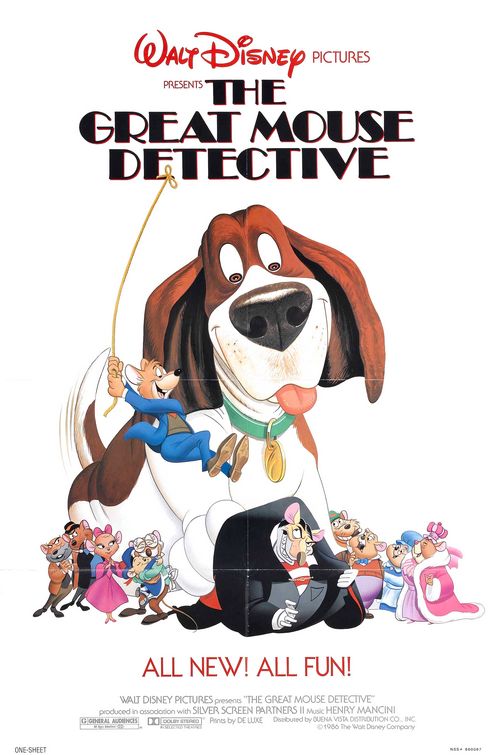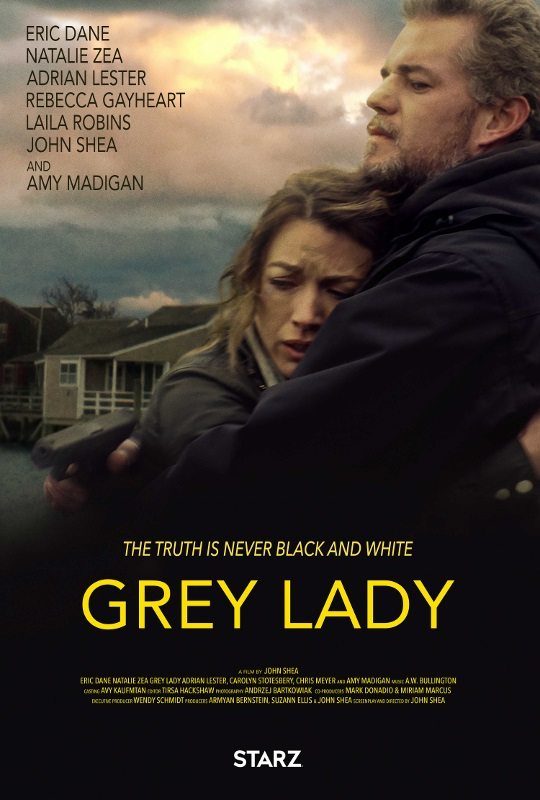“Sin Leads to Murder and Madness, but Christian Faith Restores Peace and Hope”

| None | Light | Moderate | Heavy | |
|---|---|---|---|---|
| Language | ||||
| Violence | ||||
| Sex | ||||
| Nudity |
What You Need To Know:
Despite an exciting but tragic opening, GREY LADY’s story falters a little bit. However, things pick up when new clues are revealed, and the threat to Doyle and his new friends intensifies. Everything leads to an exciting, suspenseful, but violent game of cat and mouse, with some surprising twists. GREY LADY is an interesting example of the traditional mystery thriller. Although there’s only a smattering of foul language and the violence is restrained, it has some dark family dynamics. However, they’re mitigated by strong Christian, moral elements and worldview. Extreme caution is advised for GREY LADY.
Content:
(CC, BB, PP, PaPa, AB, FR, O, LL, VV, S, N, AA, D, MM) Strong Christian, moral worldview in mystery thriller about a dysfunctional family and a terrible past sin that have created a deranged murderer on the loose who’s claiming multiple victims, with the hero/protagonist being a conscientious American police detective, including a positive reference to God’s grace, a couple scenes set in an Irish Catholic church where a character is praying, a priest appears, and a confession off screen has occurred, plus some implied or vague references to Jesus and a few references to angels, mixed with elements of pagan immorality, anti-biblical behavior and antinomian (or morally lawless or unbiblical) content, plus a villain appears to have some wicked Non-Christian cult views, and one character mentions her semi-occult belief that some murder victims have troubled spirits after they die and still hang around on earth, but the movie also seems at one point to put that belief into a vague Christian context, so it avoids having any of the characters actually trying to consult such spirits; six obscenities (including one “f” word and a couple “s” words), one strong profanity and five light exclamatory profanities; strong, intense and light violence with some blood includes man jumps through second story glass window, woman stalked and attacked, woman shot dead, people found dead with small bloody wounds on their backs, character shot and dies, character is stabbed and dies, drop of blood lands on one character’s forehead twice, woman’s murdered body found on the beach, but nothing shown, another woman is stalked, a gun battle, murderers cut off one man’s finger and threaten to cut off another one when they’re interrupted, a man is shot dead, children witness a tragic death; no sex scenes, but an unwed pregnancy is discovered, and an adulterous affair is revealed, and a flashback shows the illicit couple sleeping in bed when the front door opens, and the man has to get up; partial upper male nudity in one scene; alcohol use and one character has an alcohol problem; brief smoking but no illegal drugs, though murderer knocks out people with something in a syringe; and, villains lie to try to lure two women to their deaths, villains hate and seek revenge, one villain is clearly insane and not playing with a full deck, there’s a superstition about throwing a coin into the ocean if one desires to return to Nantucket Island, and a character hides truth about the past, but it’s eventually revealed.
More Detail:
The movie opens with Boston police detective James Doyle and his partner and fiancé, Maggie, tracking down a murderer attacking a woman at some art gallery. The attack turns out to be a trap, and the mystery assailant murders Maggie and gets away. Sadly, before the attack, Maggie had just found out she was pregnant but decided to tell Doyle after they handled the bogus 9-1-1 call from the attacked woman.
Months later, a sad and troubled Doyle travels to Nantucket Island for a vacation, but his real motive is to look up a couple long-lost relatives, his aunt, Lola, and her daughter, Beth. He believes Maggie’s murderer may have also murdered his father several years previously, which at the time was falsely judged to be a mob hit.
While looking for his two female relatives, Doyle starts becoming friends with some people on Nantucket, including Melissa, a woman who reminds him of his murdered fiancé. The murderer turns out to have a deranged female assistant, and they start targeting Doyle’s new friends and other people on the island. Their attacks seem to have a mysterious, cryptic ritualistic aspect.
Can Doyle stop these evil, devious murderers before they kill him and his new romantic interest?
After the initial murder, GREY LADY gets off to a slow start. There’s a back story to Detective Doyle and his family’s history, including the references to his father’s murder, that the filmmakers don’t explain as clearly or as efficiently as they should. In the beginning, the detective has a flashback to a childhood visit he and his widowed father made to Nantucket Island with his aunt and uncle and their young daughter. He also ponders an old color photo of the family enjoying the beach. The movie gives no context to these scenes until later. As a result, it’s not clear at first why Doyle thinks his aunt and her daughter might help him uncover the murderer’s identity or why Doyle’s even on Nantucket Island in the first place.
Later, however, as the first act develops and the second act begins, the movie starts to take off. Another murder occurs and leaves an important clue. Then, another attack occurs and leaves more clues. Finally, in the middle of the story, the identities of a mysterious young couple on the island become clearer. Everything leads to an exciting, very suspenseful, but violent game of cat and mouse, with some surprising twists along the way.
Writer/Director John Shea, a veteran character actor with a recognizable face, has fashioned a good, absorbing, very suspenseful mystery thriller. His script reflects some traditional themes of the mystery genre in movie and literature. In the traditional mystery thriller, the plot begins with an initial crime or murder that sets the detective on his hunt for the criminal or killer. That’s how GREY LADY starts. Also in the traditional mystery thriller, the initial crime or murder often disrupts a family and the social order in some way, so it’s up to the detective (and any helpers he uses) to restore that order and help the family as he or she solves the case. This is also what generally occurs in GREY LADY, which, as noted above, is nicely crafted and structured. In fact, GREY LADY is a particularly interesting example of the traditional mystery genre in that the detective is really trying to help himself and his own family. Thus, restoring the social order on Nantucket Island will also restore peace and order in his own spirit and perhaps in his own family. The story is also set in a somewhat isolated, unique part of the East Coast, Nantucket Island, which is 30 miles south of Cape Cod. This unique setting adds a personal color and flavor to the story and characters. Nantucket, by the way, is known as “the Little Grey Lady of the Sea” because of the fog that often surrounds the island.
The other good things about GREY LADY are, first, there’s little foul language in it despite its R rating. Also, though there’s some strong, sometimes bloody violence, including a few images of bloody wounds, the violence isn’t extremely graphic. Three murders occur off screen, but in one scene, the major villain cuts off a man’s finger to find out some information, so there’s a few brief images of that.
Even better, however, the movie has a fair number of Christian references. In one sequence near the end, for example, a troubled character is shown praying in an empty church. Shortly thereafter, a priest appears, and it’s implied that the character has made a confession to the priest. In this sequence, the person also reveals some important information to the hero that helps him solve the case and save the girl, but just barely in the nick of time. The information includes some very troubling facts about the hero’s family, including his father, but eventually, the hero is able to deal with this knowledge and find some peace and closure. Throughout his ordeal, it becomes clear the hero is a man of faith, though not in an overt way. Finally, one of the movie’s messages or themes, perhaps its most important one, is the idea that sin can lead to murder and madness, but that Christian faith provides deliverance, comfort, peace, hope, and new beginnings.
That said, though there are no depicted bedroom scenes, it’s clear that the hero has been sleeping with his fiancé. That, after all, is why she’s pregnant. Otherwise, however, the hero is a brave, moral, admirable man, who’s clearly intent on stopping the murderer and bringing him to justice.
So, all in all, MOVIEGUIDE® advises strong or extreme caution for the immoral content and negative family dynamics in GREY LADY, but it’s one of the better, more redemptive choices for mature audiences, especially for seasoned fans of the mystery genre.


 - Content:
- Content: 




